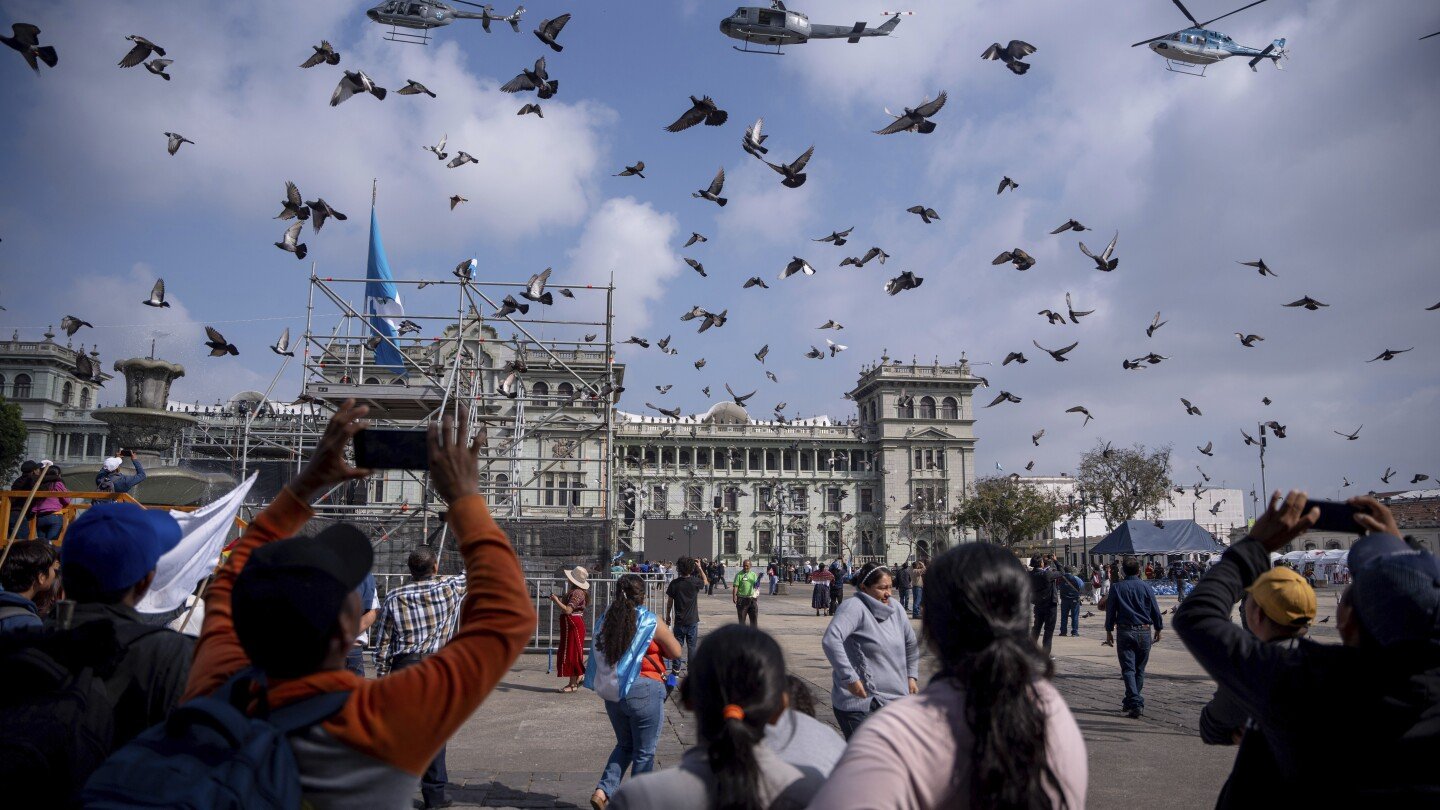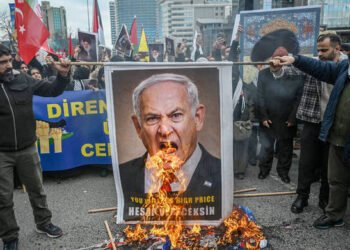GUATEMALA CITY (news agencies) — Guatemalan President-elect Bernardo Arévalo is scheduled to be sworn into office Sunday afternoon. But just like almost every day since his resounding Aug. 20 election victory, the inauguration will be tinged with doubts and tensions.
The still-serving Attorney General, Consuelo Porras, has tried every legal trick in the book to put him on trial or in jail before he takes office. And Arévalo’s Seed Movement party won’t have a majority in Congress, and may not even have formal recognition there.
And it’s not even clear if the leaders of Congress — who oppose Arévalo — will turn up for the inauguration, which could introduce legal doubts, because they are supposed to attend.
Arévalo is an academic, diplomat and the son of a progressive president from the middle of the 20th century, and his election marked a political awakening in a population weary of corruption and impunity.
“I feel enthusiastic, because we are finally reaching the end of this long and torturous process,” Arévalo said before his inauguration. “Guatemalan society has developed the determination to say ‘no’ to these political-criminal elites.”
But as much as Arévalo wants to change things, he may face enormous obstacles. His anti-corruption stance and outsider status are threats to deep-rooted interests in the Central American country, observers say.
Still, the fact he got this far is a testament to international support and condemnation of the myriad attempts to disqualify him.
For many Guatemalans, Sunday’s inauguration represents not only the culmination of Arévalo’s victory at the polls, but also their successful defense of the country’s democracy.
The inauguration is scheduled to have a festive tone: cumbia and salsa music is planned for a huge celebration in Guatemala’s City’s emblematic Plaza de la Constitución.
That Arévalo has made it to within a day of his inauguration is largely owed to thousands of Guatemala’s Indigenous people, who took to the streets last year to protest and demand that Porras and her prosecutors respect the Aug. 20 vote. Many had called for her resignation, but her term doesn’t end until 2026 and it’s not clear whether Arévalo can rid himself of her.
Prosecutors have sought to suspend Arévalo’s Seed Movement party — a move that could prevent its legislators from holding leadership positions in Congress — and strip Arévalo of his immunity three times.
On Friday, his choice for vice president, Karin Herrera, announced that the Constitutional Court had granted her an injunction, heading off a supposed arrest order. Prosecutors have alleged wrongdoing in the way the Seed Movement collected signatures to register as a party years earlier, that its leaders encouraged a monthlong occupation of a public university, and that there was fraud in the election. International observers have denied that.
One key was that Arévalo got early and strong support from the international community. The European Union, Organization of American States and the U.S. government repeatedly demanded respect for the popular vote.
Washington has gone further, sanctioning Guatemalan officials and private citizens suspected of undermining the country’s democracy.
On Thursday, the U.S. assistant secretary of state for the Western Hemisphere, Brian A. Nichols, said the aggression toward Arévalo won’t likely stop with his inauguration.
Under Porras, the country’s prosecutors and judges who led that effort have become targets, forcing dozens to flee the country or be arrested.









 United Arab Emirates Dirham Exchange Rate
United Arab Emirates Dirham Exchange Rate

